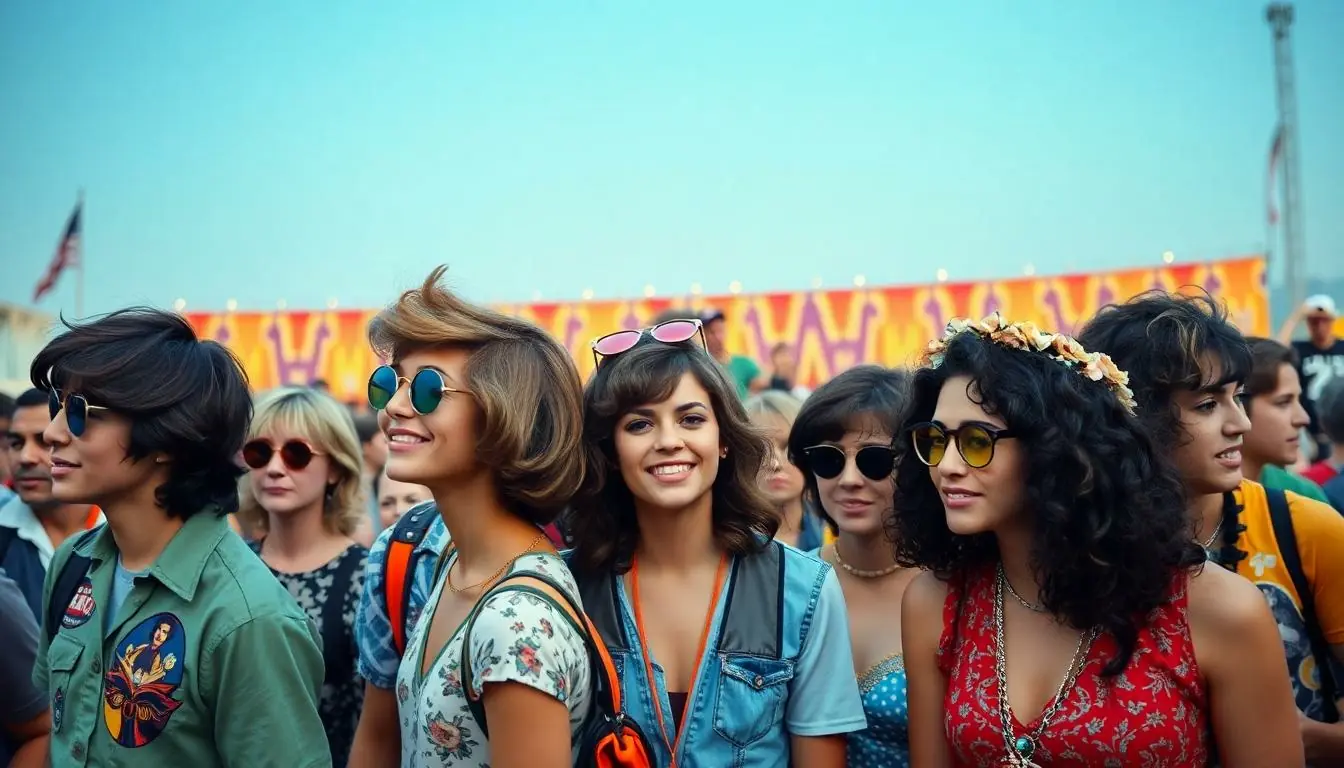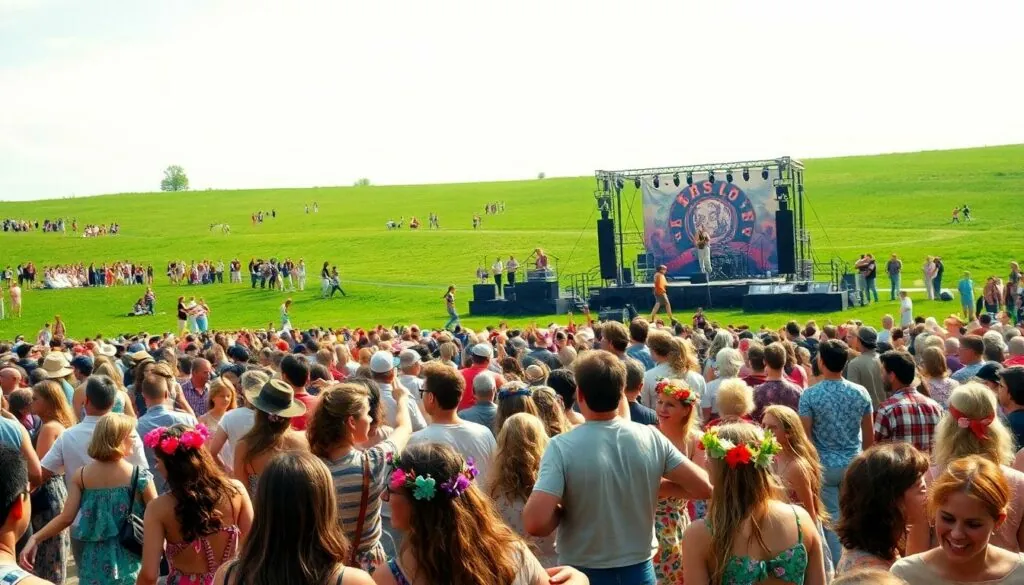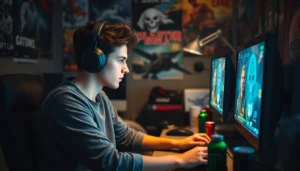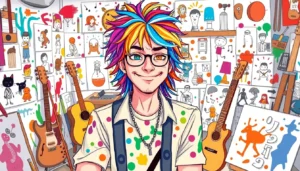Pop culture moments have a magical way of sticking in our minds, often leaving us laughing, crying, or questioning our life choices. From unforgettable movie lines to jaw-dropping celebrity antics, these events shape our collective experience and become the backdrop to our everyday conversations. Who hasn’t quoted a classic sitcom or tried to recreate a viral dance move at a party?
These iconic moments don’t just entertain; they reflect societal trends and shift cultural narratives. They’re the glue that binds generations together, proving that whether it’s a catchy song or a meme that just won’t die, pop culture keeps us connected. So grab your popcorn and prepare for a nostalgic ride through the most unforgettable moments that made us laugh, cry, and occasionally cringe.
Table of Contents
ToggleDefining Iconic Pop Culture Moments
Iconic pop culture moments capture the essence of collective experiences. These events resonate with diverse audiences, often marking significant milestones in entertainment history. Memorable movie quotes, like “May the Force be with you,” echo across generations, highlighting the lasting impact of films. Viral dance moves, such as the “Thriller” dance, ripple through social media, demonstrating how quickly trends can take hold.
Cultural phenomena shape societal norms and reflect public sentiments. When a musician drops a surprise album, it sparks conversations and unites fans worldwide. Television shows, like “Friends,” create shared language, introducing catchphrases that enter everyday vernacular. Major sporting events, such as the Super Bowl, serve as a backdrop for unforgettable commercials and halftime performances, ingraining themselves in cultural memory.
Public figures often influence the emergence of these moments. Celebrities, with their distinctive styles and opinions, drive media narratives and shape popular culture. Award ceremonies, like the Oscars, highlight artistic achievements while influencing public perceptions of success and talent. Social movements also find expression in pop culture, as seen during events like the Women’s March, where music and art amplify voices for social justice.
Successive waves of iconic moments emerge from the interplay of technology and creativity. Streaming services revolutionize how people access content, leading to the rise of binge-watching phenomena. Online platforms allow for instantaneous sharing and discussion, magnifying the reach of each moment. Through nostalgia and innovation, iconic pop culture moments forge lasting connections that persist over time.
The Evolution of Pop Culture

The evolution of pop culture showcases significant shifts influenced by societal events and technological advancements.
The 1960s: A Time of Change
The 1960s marked a transformative era driven by countercultural movements. Music festivals like Woodstock inspired youth to challenge conventional norms. Films such as “Easy Rider” captured the spirit of rebellion and self-exploration. Civil rights movements found expression in art, reflecting societal demands for change. Television introduced influential shows like “The Ed Sullivan Show,” exposing audiences to a variety of talent and ideas. This decade embodied the rise of rock and roll, with artists like The Beatles altering music’s landscape globally.
The 1980s: Rise of the Media
The 1980s heralded the emergence of robust media channels. Cable television expanded access, introducing iconic programs that shaped viewer habits. MTV revolutionized music consumption, prioritizing videos and creating cultural phenomena. Blockbuster films, including “E.T. the Extra-Terrestrial” and “Back to the Future,” dominated box offices and defined childhood experiences. Awareness of social issues, exemplified by Live Aid’s concert for famine relief, showcased artists uniting for humanitarian causes. This decade emphasized consumerism and pop icons, forging connections through shared media experiences.
Memorable Events in Music History
Music history is filled with iconic moments that shaped the cultural landscape. These unforgettable events showcase the power of music in bringing people together.
Legendary Concerts
Prominent concerts often define eras and create lasting memories. Woodstock in 1969, for instance, represented a cultural revolution and the peace movement, gathering nearly 500,000 attendees. Live Aid in 1985 raised over $125 million for famine relief in Ethiopia, featuring performances by U2 and Queen, capturing the world’s attention. The historic performance of Jimi Hendrix at the Monterey Pop Festival in 1967 introduced electric guitar artistry, thrilling audiences. Other concerts, such as Coachella and Glastonbury, continue to foster community and celebrate diverse music genres, generating excitement for new artists. Each legendary concert encapsulates moments of unity and shared passion, illustrating music’s profound influence.
Influential Artists
Influential artists frequently shift cultural perceptions and inspire generations. Elvis Presley revolutionized music by blending genres, earning the title “King of Rock and Roll.” Madonna pushed boundaries, becoming a pioneer for female artists through her innovative visuals and sound. Michael Jackson’s contributions to pop music, especially with his iconic “Thriller” video, set new standards for performance art. Beyoncé, with her powerful voice and advocacy for social justice, shapes contemporary discussions on empowerment. Recent artists like Billie Eilish redefine success with their unique styles, appealing to younger audiences. Each of these artists not only impacts music but also resonates with wider cultural movements and public sentiments.
Iconic Film and Television Moments
Iconic film and television moments have left indelible marks on popular culture. These instances shape collective memories and resonate widely across generations.
Groundbreaking Shows
Groundbreaking shows often redefine genres and showcase diverse narratives. Shows like “The Sopranos” brought complex characters to the forefront, changing perceptions of television artistry. “Game of Thrones” captivated audiences with its intricate storylines and epic battles, marking a shift in high-budget productions. “Friends” contributed to a cultural phenomenon with memorable catchphrases and relatable scenarios, further embedding its influence in everyday conversations. Each of these series sparked discussions on societal issues, illustrating how television reflects and shapes cultural narratives. Their impact continues, inspiring new generations of filmmakers and creators.
Movie Scenes That Shook the World
Movie scenes that shook the world often alter cinematic history and provoke emotional responses. The “I am your father” revelation in “Star Wars: The Empire Strikes Back” stunned audiences, adding depth to the franchise. “The shower scene” in “Psycho” created a lasting impression, influencing the horror genre and film-making techniques. Moments from “Titanic,” such as Jack and Rose’s iconic embrace, became cultural references in various media. Additionally, the ending of “The Sixth Sense” redefined narrative twists in cinema. Each scene transcended entertainment, prompting discussions and analysis that endure throughout time.
Social Media’s Role in Pop Culture
Social media dramatically influences pop culture, serving as a platform for creativity and interaction. Platforms like Twitter, Instagram, and TikTok facilitate the rapid spread of iconic moments. Memes, hashtags, and viral challenges emerge, reflecting current sentiments and shared experiences among users.
Communities form around these moments, fostering connection among diverse audiences. For instance, hashtag campaigns such as #MeToo have amplified social movements, integrating them into mainstream discussions. Similarly, challenges like the Ice Bucket Challenge demonstrated how social media can unite people for common causes, raising significant funds for charity.
Public figures leverage social media to engage fans and shape narratives. Influencers often dictate trends, showcasing products and styles that impact consumer behavior. Celebrities like Beyoncé use their platforms to discuss social issues, marrying entertainment with advocacy.
User-generated content drives engagement and creativity. Videos showcasing dance moves from popular songs often lead to chart-topping hits, highlighting the symbiotic relationship between music and social media. The “Savage Love” dance trend is a prime example of how platforms can propel songs into the cultural zeitgeist.
Real-time reactions to events create shared experiences, sparking conversations that transcend geographical boundaries. Live-tweeting during significant award shows allows audiences to engage in dialogue around performances and winners. This interaction enhances the emotional investment fans feel in pop culture moments.
Overall, social media reshapes how society interacts with pop culture. By fostering community, enhancing creativity, and facilitating real-time discussions, it solidifies its role as a driving force behind iconic pop culture moments.
Iconic pop culture moments are more than just fleeting trends; they shape collective identities and foster connections across generations. These events resonate deeply within society, reflecting shared experiences and emotions. As technology evolves, the way people engage with these moments continues to transform, ensuring their relevance in a rapidly changing world.
From unforgettable movie lines to viral dance challenges, each moment contributes to a rich tapestry of cultural history. They invite reflection and discussion, solidifying their place in the hearts and minds of audiences everywhere. As new iconic moments emerge, they’ll undoubtedly continue to inspire and unite, proving that pop culture remains a vital force in shaping human experiences.





